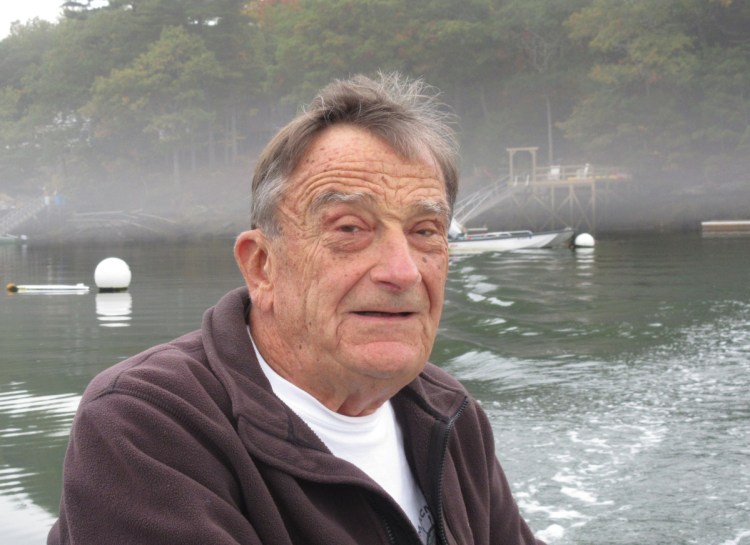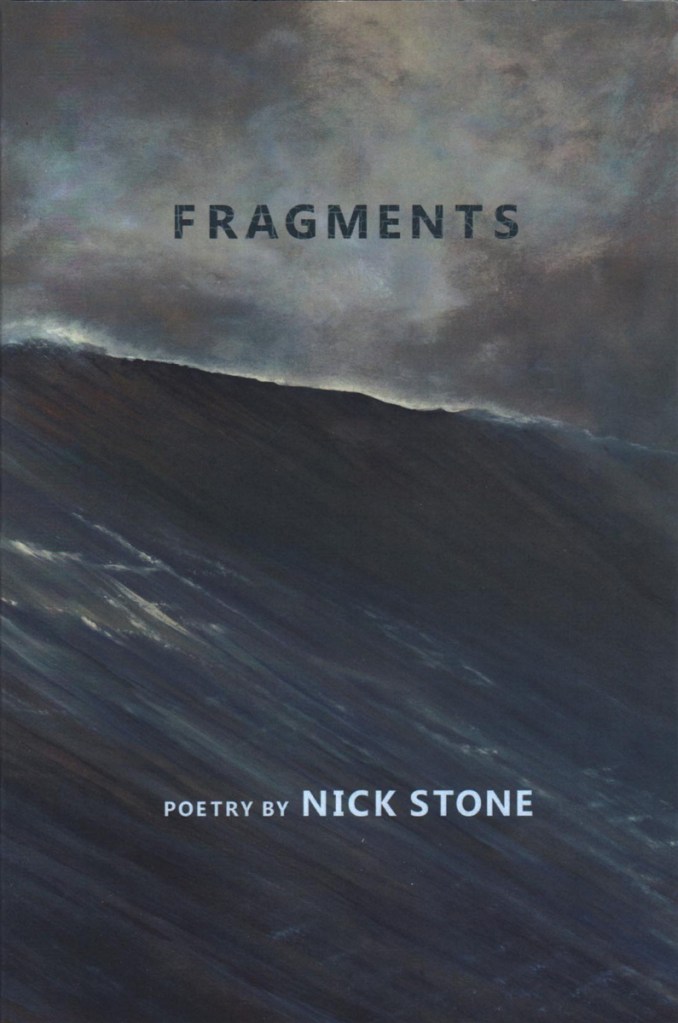Nick Stone spent most of his life either on the water or in the board rooms of Boston, where he worked and excelled as a corporate lawyer.
He enjoyed the challenge of writing incisive, precise and compelling legal briefs and documents. “That was the left side of my brain functioning to its max,” said Stone, whose debut book of poetry, “Fragments,” presents the kind of writing he does with the right side of his brain.
“Writing poetry is totally opposite. I enjoyed lawyerly writing, and I did it well as a senior partner at one of the largest law firms in the country, and I had a reputation for being good at it. But after all those years and thousands and thousands of hours, poetic writing is a huge release – a freedom, you could say.”
Stone lives on MacMahan Island in Georgetown. He’s been coming to the island since childhood, when his grandparents bought the island and invited the family up for the summer.
He knew he had arrived in Maine when he smelled the salty air and dipped his finger in the water as the family motored to the island in a 15-foot wooden skiff, powered by a tiny Evinrude outboard.
“It was freedom – freedom to be on my own and approach life on my terms and say what I wanted to and not what someone told me I had to,” he said.
The ocean became a part of his personality. He read nautical books, learned to handle the boat and rowed crew in college. He worked at Bath Iron Works in the summer during college and joined the Coast Guard before practicing law.
He’s traveled all over the world and always dipped his finger in the water of whatever foreign land he found himself. Doing so made him think of the salty waters of Maine.
Stone and his wife, Erin, made MacMahan Island their home about a decade ago, when he retired from law. Most of his career, he was a senior partner at Nutter, McClennen & Fish. For the last 13 years, he was a senior partner at Hale and Dorr. Both are Boston law firms. Seven or eight years ago, he began writing poetry seriously. “Before that, I would write occasional poetry, for a funeral or other occasions that were appropriate for poetry. But it was infrequent. I didn’t sit down to do it deliberately,” he said.
Moving to Maine encouraged his right-brain creativity.
The idea of a book – Stone published “Fragments” independently through Maine Authors Publishing of Thomaston – came about last spring, when a friend told Stone he was publishing a memoir. Why publish a book? Stone asked.
“His answer was telling to me: ‘My children don’t know who I am,’ ” Stone recalled his friend saying.
If anyone wonders about Stone and his life, the answers are in the pages of this book of autobiographical poetry. “This will help them know more about who I am and who I was,” he said.
All the poems in “Fragments” are true, he said.
To illustrate the book, he reproduced the painting “Seventh Wave” by Marilyn Voorhees Hansen. He owns the painting, which hangs in his island home.
Stone divided the book into sections: the sea, love and family, a call to pens and the dream of life.
There’s a melancholy in Stone’s words, a longing with sad, over-the-shoulder glances. He opens with “Ocean Station Bravo,” which celebrates his North Atlantic search-and-rescue duty of years gone by, from the perspective of an old sailor in a nursing home, who asks, “if I die here, will God find me?”
In “Tanka,” he ponders:
the sea is calm now
shimmering in the moonlight
softly calling me
I must go out to meet it
and start my last adventure
In “The Stutterer,” he reflects on his difficult youth, when his “childhood tongue was frozen” and he couldn’t speak.
One Saturday my father said
he’d take me to his work
I’d meet his boss
“he holds the key to my career”
he said
“look him in the eye
speak up and shake his hand”
instead my eyes were down
my hand was limp
I couldn’t spit out even just one word
the boss did not notice
didn’t care
while my father’s shame
infused my soul
There’s hope here, too. He closes the book with “Ode to a Peeper Frog,” which celebrates the prospect, or promise, of life after death. The springtime frogs signal their own awakening from the frozen winter and the return of life with their “thousand-throated choir.”
And there’s humor.
In “Lighted Lifetime,” the poet reflects on all the bright, guiding lights of his life:
magic Santa lights and tinsel
on those early Christmas Eves
Coronado ocean sunset
Quoddy sunrise through the mist
summer fields ablaze with fireflies
phosphorous sparkles in the waves
Times Square at the stroke of midnight
lightning on a summer eve
Borealis over icebergs
those are some that I have seen
now my guiding light’s the nightlife
when I must get up to pee.
Send questions/comments to the editors.





Success. Please wait for the page to reload. If the page does not reload within 5 seconds, please refresh the page.
Enter your email and password to access comments.
Hi, to comment on stories you must . This profile is in addition to your subscription and website login.
Already have a commenting profile? .
Invalid username/password.
Please check your email to confirm and complete your registration.
Only subscribers are eligible to post comments. Please subscribe or login first for digital access. Here’s why.
Use the form below to reset your password. When you've submitted your account email, we will send an email with a reset code.